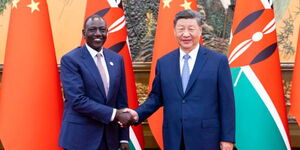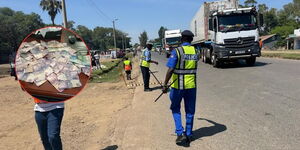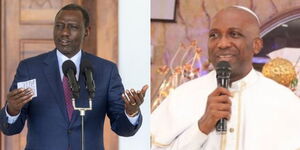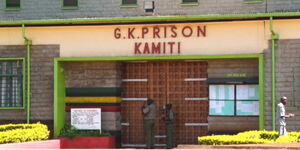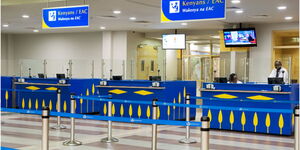Education Cabinet Secretary Fred Matiang'i in 2016 received overwhelming praise following his strict measures that were manifested in the historic completion of national examinations free of irregularities.
The tough regulations began being implemented after the release of the 2015 KCSE results where more that 5,000 candidates had their results cancelled due to malpractices.
This sparked countrywide outcry with the CS declaring that things would not be the same again since he would introduce stringent measures to curb the vice.
1. Disbanding KNEC Board
First, Matiang'i disbanded the Kenya National Examination Council (KNEC) Board, with the subsequent sacking of nine board members, after it was accused of abetting exam irregularities.
2. Reorganising Exam Dates
Later in May, the CS reorganised the school calendar and made major changes in the dates of sitting for the national examinations.
3. Changing Term Dates
Matiang'i prolonged the 2nd term by two weeks and shortened the 3rd term from 12 to nine weeks with the school closing dates being changed to the last week of October.
4. Reducing Exam Period
This was followed by reducing the examination period from six to four weeks in an attempt to minimise any chance of the papers leaking.
5. Banning 3rd Term Activities
At the same time, Matiang'i announced that he had banned all 3rd term social activities including prayer days, visiting, half-term breaks, sports, prize-giving ceremonies and annual general meetings in a bid to cut contact between candidates and outsiders.
At that time, the Cabinet Secretary received a backlash from various education stakeholders who claimed that the tough rules being imposed on the students would not help end the cheating menace.
This was reiterated by CORD leader Raila Odinga who even blamed the new changes for the rampant school fires that were witnessed within the year.
6. Vetting of examination supervisors and invigilators
Unperturbed by the criticism, Matiang'i turned to teachers declaring that examination supervisors and invigilators would be vetted by the Teachers Service Commission to ensure they had no criminal record before they are allowed to handle the tests, while school principals would now be in charge of their examination centres.
7. Exam Fees
Additionally, the government announced that it would pay exam fees for candidates in both private and public primary schools from 2017, a move that was highly lauded.
8. Early release of results
In December, Matiang'i caught the country by surprise after releasing the 2016 examination results abruptly without prior notice contrary to the tradition where the marks were announced after the Christmas holiday.
9. Form One Candidates selection
The CS also introduced a new schedule of Form One candidate selection which started a week after the release of the results. The candidates are also set to report to their respective schools on January 9, 2017, as opposed to earlier years where the exercise happened in February.
10. ICT system
Finally, the Ministry, in the course of the year, embraced the ICT system and established closer collaboration with the Ministry of Interior which Matiang'i said had played a critical role in restoring sanity in the education sector and credibility of national tests.

